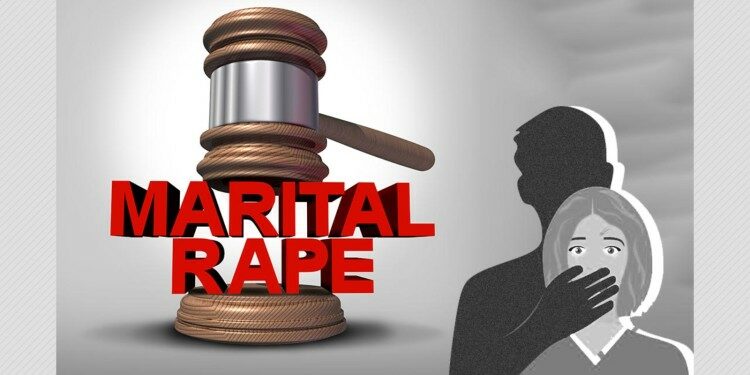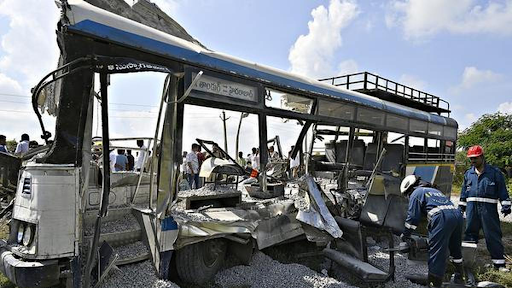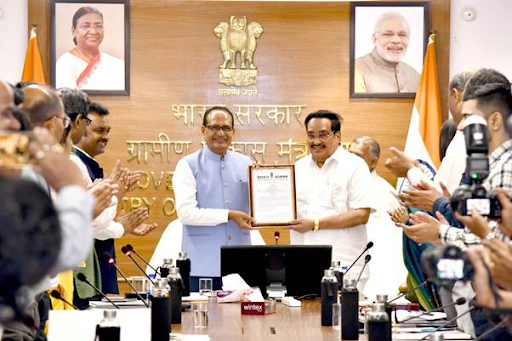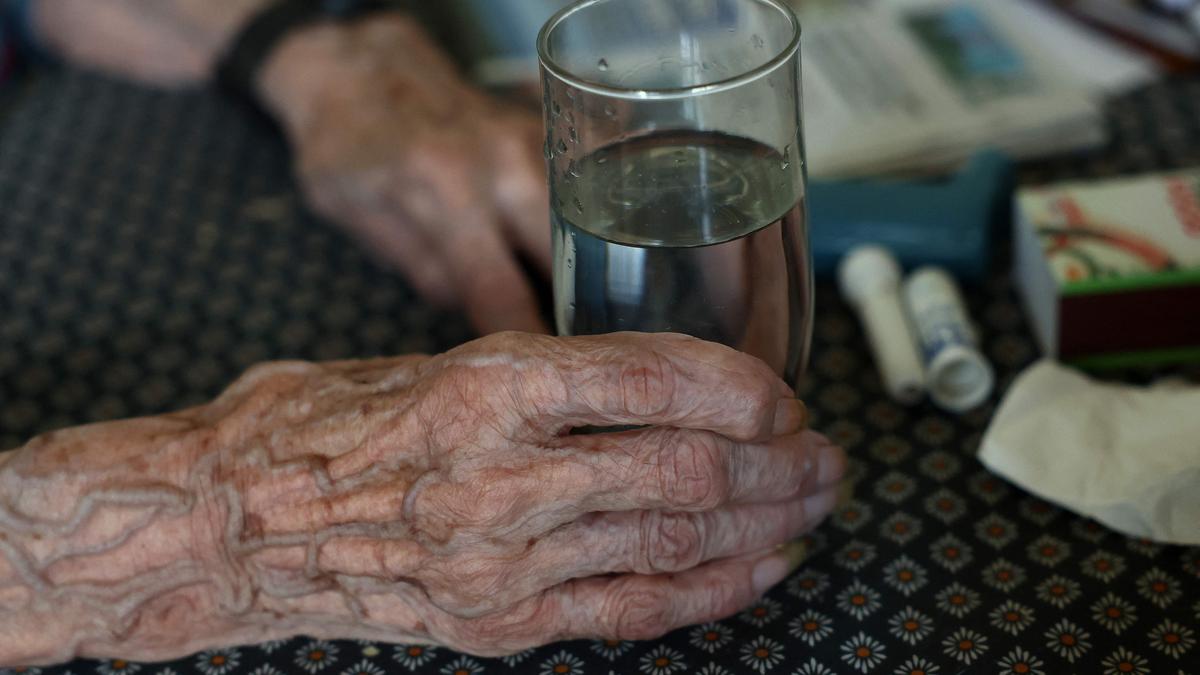
Disclaimer: Copyright infringement not intended.
Context:
- The Delhi High Court refused to grant more time to the Centre to place its stand on the issue of criminalization of marital rape, saying that it was not possible to defer an ongoing matter endlessly, and reserved its judgment on the petitions.
Background:
- The Delhi High Court recently observed said that while there can be no compromise with women's right to sexual autonomy and any act of rape has to be punished.
- The court questioned as to why the exception from the offence of rape granted to a married couple had remained in the legislature for several years.
- This exception remained in spite of the wide scope of Section 375 of Indian Penal Code which included even a single act of “unwilling sex” as rape.
Marital Rape:
- Marital rape can be defined as any unwanted sexual intercourse or penetration obtained by force, threat of force, or when the wife is unable to consent.
Indian legislation on rape:
Section 375
- The definition of rape codified in Section 375 of the Indian Penal Code [IPC] includes all forms of sexual assault involving non-consensual intercourse with a woman.
- However, Exception 2 to Section 375 exempts unwilling sexual intercourse between a husband and wife over fifteen years of age from Section 375’s definition of rape and thus immunizes such acts from prosecution.
- Thus, in India, marital rape exists de facto but not de jure.
Section 376
- Section 376 of IPC provides punishment for rape.
- According to this Section, the rapist should be punished with imprisonment of not be less than 7 years but which may extend to life or for a term extending up to 10 years and shall also be liable to fine.
As per Indian Penal Code, the instances where husband can be criminally prosecuted for an offence of marital rape are as under:
- When the wife is between 12-15 years of age, offence punishable with imprisonment upto 2 years of fine, or both.
- When the wife is below 12 years of age, offence punishable with imprisonment of not be less than 7 years and may extend to life /10 years and shall also be liable to fine.
- Rape of a judicially separated wife, offence punishable with imprisonment up to 2 years and fine.
- Rape of wife of above 15 years in age is not punishable.
Note: Marital Rape in all other cases is not considered as rape as they fall under exceptions.
History of the anomaly of marital rape:
- 18th century English law had a set of rules where the wife was considered being dependent on her husband, incapable of independent existence.
- Husband and wife were marked as one entity, and all the rights of the wife (including her sexual rights) were subsumed by those of her husband.
- Exception 2 of section 375 was a result of these blanket rules that arose in 18th century English law.
It is strange to presume that this still applies to modern day India in the 21st century where women are independent citizens under law. India is one of the thirty-six countries that still have not criminalized marital rape. The Supreme Court and various High Courts are currently working on various writ petitions challenging the legality of marital rape.
Observations made by Court and Committees:
Justice Verma Committee report
- Justice Verma Committee report (2013) had recommended removal of exception of marital rape.
- The report underscored the fact that marital rape immunity had been withdrawn in most foreign jurisdictions.
- According to the Report, the relationship between the accused and the complainant is not relevant to the inquiry into whether the complainant consented to the sexual activity.
- In November 2017 a division bench of the Supreme Court of India, in the case of Independent Thought v. Union of India read down Exception 2 to Section 375, IPC as being violative of Article 14 and 21 of Indian Constitution.
Kerala High Court Observations
- Marital rape is a good ground to claim divorce. The law not recognizing marital rape under penal law does not inhibit the court from recognising the same as a form of cruelty to grant divorce.
- Right to respect for his or her physical and mental integrity encompass bodily integrity, any disrespect or violation of bodily integrity is a violation of individual autonomy.
Law Commission Report
- In the 42nd Report by the Law Commission, it was recommended that criminal liability should be attached to the intercourse of a man with his minor wife.
- However, the committee refused the recommendation stating that husband cannot be guilty of raping his wife of whatever age since sex is a parcel of marriage.
State of Maharashtra v Madhukar Narayan Mardikar
- In State of Maharashtra v Madhukar Narayan Mardikar , SC referred to the right to privacy over one’s body.
- It was decided that a prostitute had the right to refuse sexual intercourse.
- What is sad to know that all stranger rapes have been criminalized and all females, other than wives, have been given the right to privacy over their bodies.
Independent Thought vs Union of India
- A girl between 15 and 18 years of age who is married could be a victim of “aggravated penetrative sexual assault under The Protection of Children from Sexual Offences (POCSO) Act, 2012 but she cannot be a victim of rape under the IPC” if she is raped by her husband since the IPC does not recognize such an assault as rape.
- It is contrary to the provisions of POCSO Act.
- Supreme Court further observed, “Marriage is not institutional but personal – nothing can destroy the ‘institution’ of marriage except a statute that makes marriage illegal and punishable. In this context, marital rape can be taken out of the exception.
Provisions under Indian Constitution:
Part III
- Part (iii) of Indian Constitution guarantees all the citizens of India irrespective of their caste, race, sex, religion, pace of birth etc. certain fundamental rights
- Rape laws in India are violative of Article 14 and 21 of Indian Constitution.
Violation of Article 14
- Article 14 provides for equality before law and equal protection of laws.
- Exception 2 to Section 375 clearly discriminates between married women above the age of 15 and below the age of 15.
- Section 375 IPC takes away women’s right of choice and indeed effectively deprives her of bodily autonomy and her personhood.
Violative of Article 21
- Article 21 of the Constitution guarantees protection of life and personal liberty. Right to live in Human Dignity.
- In Bhodhisathwa Gautam v Subhra Chakraborthy, SC held that Rape is a crime against basic human rights and fundamental right. A married woman too has the right to live in human dignity, right to privacy and rights over her own body. Marriage can in no way take away these rights.
Right to Sexual Privacy
- In Justice S Puttaswamy v Union of India held the right to privacy as a fundamental right and includes decisional privacy reflected by an ability to make intimate decisions primarily consisting of one’s sexual or procreative nature and decisions in respect of intimate relations.
The marital rape exception is an insult to the constitutional goals of individual autonomy, dignity and of gender equality enshrined in fundamental rights such as Article 21 (the right to life) and Article 14 (the right to equality).
Criminalization of marital rape;
Arguments against Criminalization
- Burden on legal system: Due to near impossibility of proving marital rape, its criminalization would only serve as an increased burden to the already overburdened legal system.
- Misuse: Dissatisfied, angry, vengeful wives might charge their innocent husbands with the offence of marital rape.
- Implied consent: There is an implied consent to have sexual intercourse when a woman marries a man.
- Destroys marital institution: Marital rape laws would destroy many marriages by preventing any possible reconciliation.
Arguments for Criminalization
- Rate of prevalence: A study conducted by the Joint Women Programme, an NGO found that one out of seven married women had been raped by their husband at least once. They do not report these rapes because law does not support them.
- Deterrant effect: It may be showed that criminalization of marital rape, serves to recognize rape in marriage as a criminal offence and would have a deterrent effect on prospective rapists husbands.
- Judicial capacity: Women foisting malicious charges, it may be noted that if proving a claim of rape in marriage is hard, proving a fabricated claim will be even more difficult.
- Marriage can’t be sanction to rape: Expression of love through sexual intimacy is not the same ass forced sex.
- Preservation of marriage-a vague argument: A marriage in which the husband rapes his wife is already destroyed. Withholding justice and denying equal protection for preserving marriages can be an improper goal of law.
- Deep rooted Patriarchy: In Joseph Shine v. Union of India (2018), the Supreme Court held that the offence of adultery was unconstitutional because it was founded on the principle that a woman is her husband’s property after marriage. The marital rape exception betrays a similar patriarchal belief: that upon marriage, a wife’s right to personal and sexual autonomy, bodily integrity and human dignity are surrendered. Her husband is her sexual master and his right to rape her is legally protected.
Suggestions for Reform:
- Marital Rape should be recognized by Parliament as an offence under the Indian Penal Code.
- The punishment for marital rape should be the same as the one prescribed for rape under Section 376 of the Indian Penal Code.
- The fact that the parties are married should not make the sentence lighter.
- It should not be a defense to the charge that the wife did not fight back and resisted forcefully or screamed and shouted.
- The wife should have an option of decree of divorce if the charge of marital rape is proved against her husband.
- Corresponding charges in the matrimonial laws should be made.
Conclusion:
- The continuous exemption of marital rape from the purview of criminal law sustains the assumption of the wife as exclusive property of the husband.
- The immediate need is criminalization of marital rape under the Indian Penal Code.
- There is also a need to educate the masses about this crime, as the real objective of criminalizing marital rape can only be achieved if the society acknowledges and challenges the prevailing myth that rape by one’s spouse is inconsequential.
ALSO READ: https://www.iasgyan.in/blogs/the-ethical-and-moral-issues-in-marry-your-rapist-convention
https://epaper.thehindu.com/Home/ShareArticle?OrgId=GHB9H9AS5.1&imageview=0











